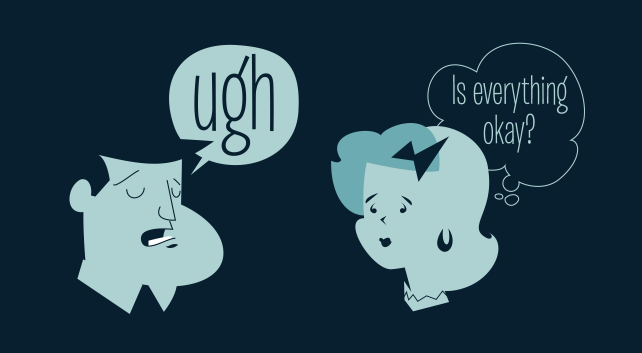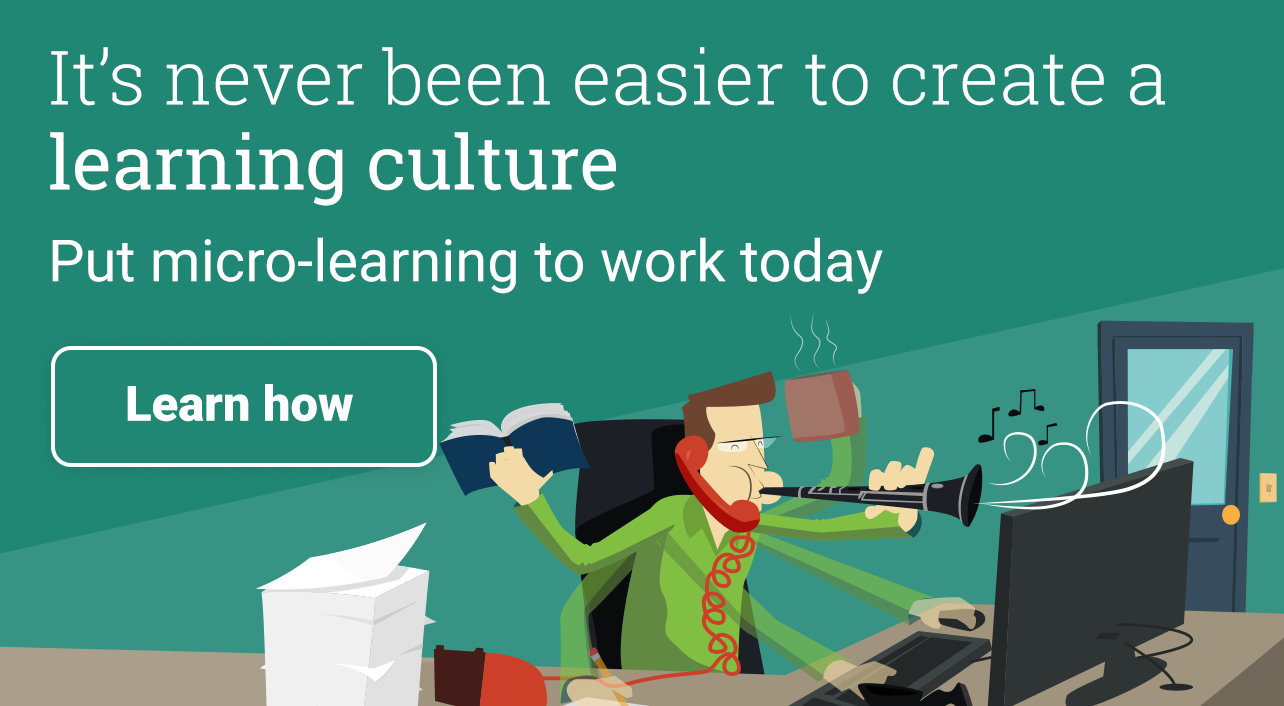- rli
- Blog post
Of course learners shouldn’t beat themselves up… or should they?
Imagine someone in your sales team just had a rough morning. The deal she thought was a sure thing ended up falling apart, and she wasn’t able to close after seemingly coming so close.
Now, predictably, the salesperson is feeling pretty low. And she can’t help but think about everything she might have done differently. So her manager walks over to offer support. “These things happen,” the manager says. “It’s happened to every one of us. Forget it; don’t beat yourself up about it.”
The manager is obviously doing the right thing for his salesperson. Or is he? A recent study suggests that you may want to handle failure a little differently in your organization — and if you do, your employees’ performance might just improve.
The research
A research team based at the University of Kansas conducted a study to analyze how reactions to failure affect future performance. Specifically, they compared a cognitive response to failure — thoughts on what happened and why — with an emotional response — how failing made them feel.
In the experiment, researchers gave 98 subjects a simple task: Search online for the most inexpensive blender available. If you find it, receive a 50 dollar prize.
Before beginning the task, half the subjects were told to focus on their thoughts after winning or losing the prize, while the other half were told to focus on their feelings.
Unfortunately for the subjects, the task was rigged, and all subjects they failed. Then they were asked to write about either their thoughts or their feelings about the failure.
Next, the two groups were then given a second task, which also asked them to find the cheapest product. (This time the outcomes weren’t rigged.) The “thinking” group performed pretty much the same as before. But the “feelings” group spent 25 percent more time searching for the product and were more successful in the task.
Thinking vs. feeling
The researchers argue that the “feelings” group allowed themselves to feel bad about failure – and that negative feeling became a motivating force, causing them to work harder on the next task and ultimately have more success.
After analyzing the groups’ writing, the researchers also found that the thinking group tended to focus on self-protective thoughts, such as “This wasn’t my fault, the task was too hard,” while the feeling group focused on self-improvement thoughts, such as “I know I can do better next time.”
Essentially, the study states that a cognitive response often involves rationalizing the failure to block the negative emotions. But allowing yourself to feel those negative emotions can be strong fuel for self-motivation and improvement.
“Emotional responses to failure can hurt,” said the head researcher. “They make you feel bad. That’s why people often choose to think self-protective thoughts after they make mistakes.”
“But if you focus on how bad you feel, you’re going to work harder to find a solution and make sure you don’t make the same mistake again… That should lead to learning and future decision making that is more positive.”
Implications
In real-world situations, people have both cognitive and emotional reactions to failure. And of course it’s completely reasonable to think about how and why things went wrong and to cut yourself some slack when certain factors are out of your control.
But the key is: Don’t suppress or ignore the emotional response. When a learner is struggling or fails at a task, don’t just rationalize it away or immediately try to make them feel better. The study suggests that focusing briefly on that negative feeling can be a powerful motivator.
Consider emulating the study and ask learners to get in the habit of writing down their feelings after a tough failure. Then — and this part is important — ask them to write down what they’re going to do differently to make sure they never feel that way again.
Source
Nelson, N., et al. (2017). Emotions know best: The advantage of emotional versus cognitive responses to failure. Journal of Behavioral Decision Making. doi: 10.1002/bdm.2042

Get a demo of all our training features
Connect with an expert for a one-on-one demonstration of how BTS Total Access can help develop your team.



